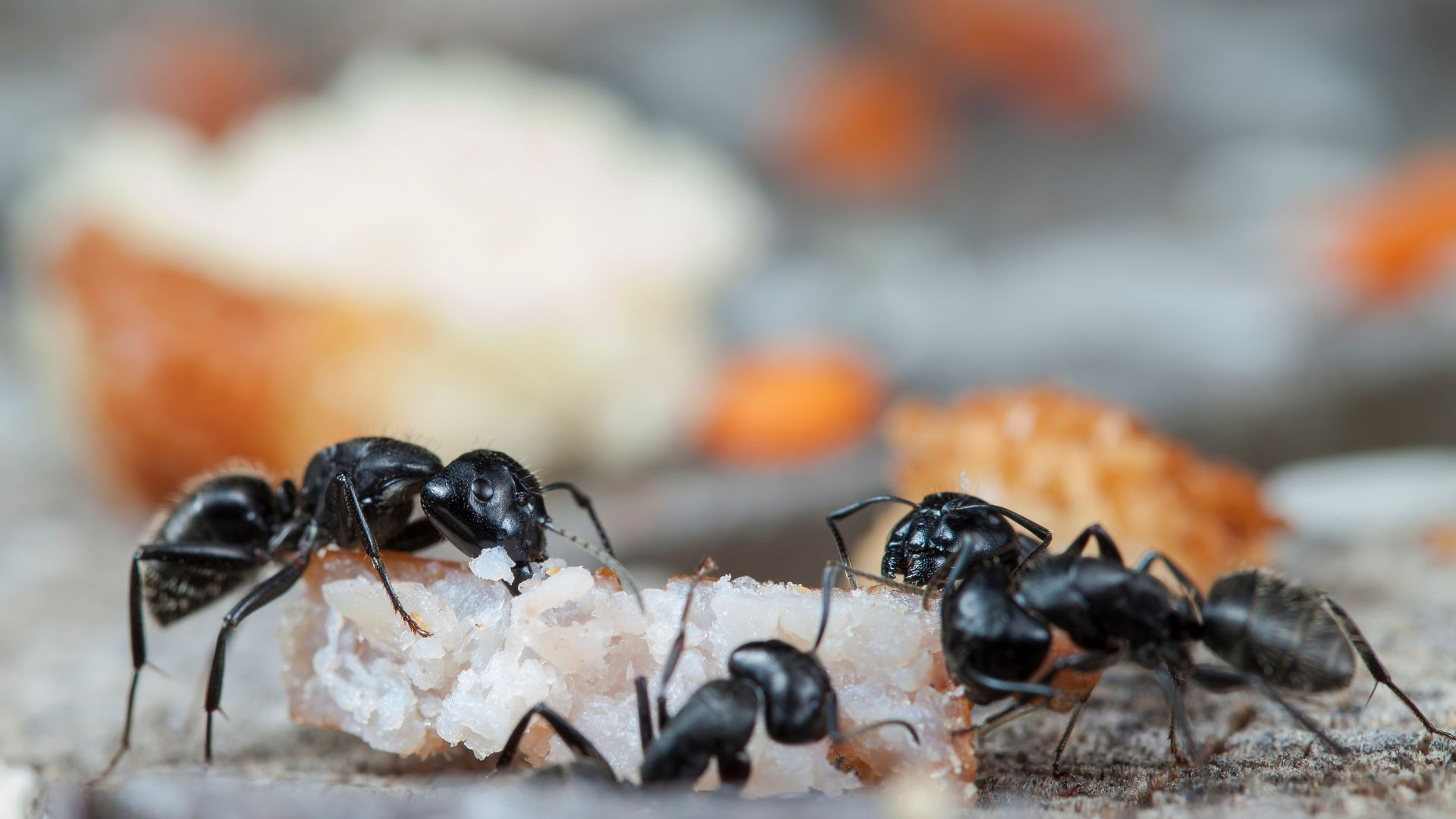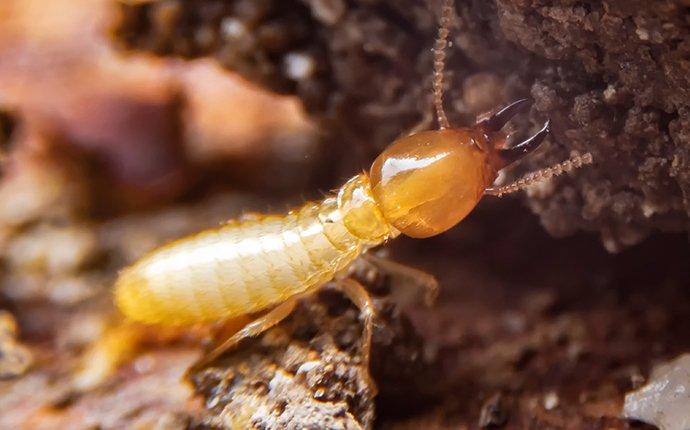Leading Ant Control Services: Dependable Solutions for Your Home or Service
Wiki Article
Environmental Impact of Insect Control: Harmonizing Effectiveness With Sustainability
The ecological influence of bug control is an essential concern that needs a delicate equilibrium in between attaining efficiency in making sure and managing parasites sustainability of our environments. As we aim to protect our plants, homes, and wellness from the threats positioned by pests, the methods we employ can accidentally harm the setting. From making use of harmful chemicals that leak right into our dirt and water to the unintentional consequences on non-target varieties, the effects of conventional bug control techniques are far-ranging. However, there are emerging methods that supply hope for a much more lasting technique to pest monitoring. These remedies not just purpose to address the instant pest troubles however additionally take into consideration the long-term wellness of our world.Harmful Chemicals in Parasite Control
The use of damaging chemicals in insect control positions significant environmental and wellness threats that necessitate cautious factor to consider and reduction methods. Herbicides, pesticides, and pesticides are typically made use of to remove parasites, but their widespread application can cause unplanned repercussions. These chemicals can pollute soil, water sources, and the air, influencing not only the targeted insects however also advantageous insects, wildlife, and humans.
To attend to these dangers, integrated bug management (IPM) methods are being advertised as a much more sustainable choice. IPM entails a combination of methods such as biological control, habitat control, and the targeted use of chemicals as a last resource (ant control lewisville nc). By embracing a holistic technique to pest control, we can decrease the ecological and health impacts related to harmful chemicals while efficiently taking care of pest populaces
Influence On Non-Target Species
Taking into consideration the unintended effects of parasite control techniques, the impact on non-target types is an essential facet that needs detailed assessment. While bug control procedures intend to target specific parasites, other microorganisms in the ecological community may be unintentionally influenced. Non-target types, consisting of helpful bugs, birds, mammals, and even plants, can experience direct or indirect harm from chemical applications or organic control techniques.Pesticides can have sub-lethal or lethal results on non-target varieties. Pesticides made to combat a certain bug pest might hurt pollinators like bees or all-natural predators such as ladybugs. Additionally, chemical deposits can accumulate in the atmosphere, influencing non-target organisms over time. Likewise, organic control agents, if not species-specific, can pose dangers to unplanned targets, disrupting the ecological balance.
To mitigate the influence on non-target types, incorporated pest monitoring (IPM) approaches that stress an all natural technique to pest control are recommended. These techniques prioritize using ecologically friendly methods, decreasing injury to beneficial microorganisms while properly handling pest populaces. Carrying out complete risk evaluations and checking the outcomes of insect control efforts are necessary action in safeguarding non-target varieties and promoting total environment wellness.
Soil and Water Contamination
Unintended ecological effects of insect control methods extend beyond influencing non-target species, with considerable effects for soil and water contamination. Chemicals, herbicides, and chemical plant foods made use of in pest control can leach into the dirt and infect groundwater, posing a threat to both earthbound and marine ecological communities. Soil contamination can disrupt the balance of microorganisms essential for nutrition cycling and plant development, resulting in decreased dirt fertility and productivity. In addition, these chemicals can continue in the environment for extended durations, building up in the dirt and possibly getting in the food cycle.Water contamination is another vital concern connected with bug control techniques. To reduce soil and water contamination from pest control tasks, integrated parasite monitoring techniques that prioritize sustainability and decrease chemical inputs are essential.
Air Air Pollution From Chemical Usage
Exposure to air-borne pesticides throughout agricultural applications positions a substantial worry for air pollution control procedures. They can volatilize into the air and kind unstable organic compounds (VOCs) and various other air-borne pollutants when chemicals are sprayed onto plants - ant control services. These chemicals can add to the development of ground-level ozone, a significant part of smog that can have damaging results on human health and wellness, crop performance, and general air quality. In addition, pesticide drift, where chemicals are carried by the wind to unexpected areas, can bring about the contamination of nearby ecological communities and water bodies.
Methods for Sustainable Bug Control
In the world of agricultural techniques, implementing sustainable bug control strategies is critical for keeping environmental balance and securing plant yields. Lasting pest control highlights making use of eco pleasant methods to manage insect populations properly while decreasing harm to non-target microorganisms and environments. Integrated Insect Management (IPM) is a widely embraced strategy that combines organic, social, physical, and chemical control methods to attain lasting parasite management options.One trick approach in lasting bug control is advertising biodiversity within agroecosystems. By boosting natural adversaries of insects, such as predators and parasitoids, farmers can lower the need for artificial pesticides. Crop rotation and diversification are additionally efficient strategies to interfere with pest life process and develop less favorable problems for parasites to grow. Additionally, using pest-resistant plant ranges and utilizing methods like catch cropping can help reduce parasite stress without depending greatly on chemical interventions. Ultimately, by incorporating these sustainable pest control strategies, farmers can attain a balance in between pest administration effectiveness and ecological stewardship.
Final Thought
In verdict, the ecological effect of insect control approaches must be very carefully taken into consideration to stabilize effectiveness with sustainability. Harmful chemicals utilized in pest control can result in soil and water contamination, air pollution, and injury non-target varieties - ant control. It is important to carry out lasting parasite control techniques to lessen these unfavorable results on the atmosphere and advertise a healthier community for future ant control clayton nc generationsBy embracing an alternative method to pest control, we can minimize the ecological and wellness effects linked with dangerous chemicals while effectively taking care of pest populaces.

To mitigate the air pollution caused by pesticide usage, it is vital to take on incorporated parasite monitoring methods that focus on the usage of non-chemical parasite control approaches, such as plant turning, natural predators, and resistant crop ranges. Lasting bug control highlights the usage of environmentally friendly approaches to handle bug populaces properly while lessening harm to non-target microorganisms and ecological communities. Integrated Parasite Monitoring (IPM) is a widely adopted approach that integrates biological, cultural, physical, and chemical control techniques to attain long-lasting bug administration options.
Report this wiki page